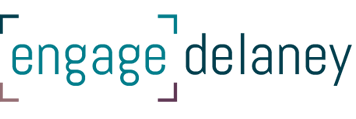Confessions of an Interrupter (and a Few Listening Tips)
I realized with dread recently that I am an interrupter.
It’s not that I don’t care what the other person has to say, or think that what I have to add is more important. It’s more that I get so excited about what we are talking about that I want to complement their ideas with mine. But, as Richard Delaney says, “listening is not a chance to reload.”
I need to quit, but how to break the habit? How to become a better listener? I am in a career where being a skilled, active listener is essential, if not the foundation of what we do. So I have done some research and made a resolution to practise listening and not interrupt (it’s a work in progress… old habits die hard).
Did you know that adults spend about 70% of their time communicating, and out of that 45% of it is listening? However, according to Julian Treasure, a profoundly useful sound expert, we only retain about 25% of what we hear. That’s a lot of missing information!
Mr. Treasure fears that in an increasingly noisy, impatient and individualistic world we are losing our listening. In one of his TED talks, he suggested these five exercises to improve our listening:
1) spend three minutes in silence each day,
2) “the mixer” – in a noisy environment, identify as many channels of sound as you can and focus on them momentarily,
3) savouring mundane or repetitive sounds (such as the hum of the fridge or dishwasher),
4) try moving your listening perspective. For example, guiding someone to elaborate on or summarize what they are saying. Or, as another example, try moving from a positing of criticism to a position of empathy.
5) remember the acronym RASA: Receive- pay attention; Appreciate – make appreciative noises; Summarize – so you mean…? ; Ask – ask questions after they have finished speaking.
These exercises seem simplistic, but Mr. Treasure argues that by practising them we can more skillfully move away from just hearing and spend more time actively listening to what is going on around us. One blog I read compared hearing to seeing and listening to observing. Listening takes effort. It isn’t something that happens passively.
To listen well means to also pay attention to tone, volume, intention, body language, context and subtext. What the speaker is saying is important, but what do they mean? What is the message? This can get interesting, because sometimes people don’t even mean what they are saying and visa versa.
As a traveller who has spent a lot of time in places where I don’t speak the native language, I know very well the importance of body language. It is amazing how much you can intuit what a person means without actually understanding all (or any) of the words. When you listen to what the speaker means, as well as what they are actually saying, powerful things can happen.
In the world of public engagement, actively listening is paramount. So much so that it was one of the first interview questions in the process by which I was hired to work at D+A: Give us your perspective on the importance of listening when it comes to communications and engagement. I answered along these lines: As facilitators, we must ask questions, or summarize what we have heard, to make sure that we have completely understood. We should play close attention to the subtext in the room, to make sure the real meaning of the information is communicated and recorded. And, we need to listen to the quieter voices too.
In engagement, we need to be aware of the biases and opinions that we may bring, and put those aside to be neutral in our role as listeners. We can’t communicate the ideas of those we engage if we aren’t truly listening to them. (I must have passed the interview test.)
The importance of listening in the public participation industry was also clearly highlighted in Andrew Coulson’s #onetweetonetip exercise that was designed to create a crowd-sourced guide to successful engagement. More than 10% of the tips focused on listening, including advice to listen to participants’ thoughts and let people know what you have heard. It seems we are in agreement that actively listening is essential to engage successfully and productively.
In my research, I’ve learned that listening isn’t something that we can perfect, but rather it must be constantly practiced in the present moment. I’ve also learned how vitally important the skill of listening is, and how much I’m not alone in needing to improve.
With these lessons in mind, I will practice my exercises and truly make an effort to listen to people while they are speaking.



